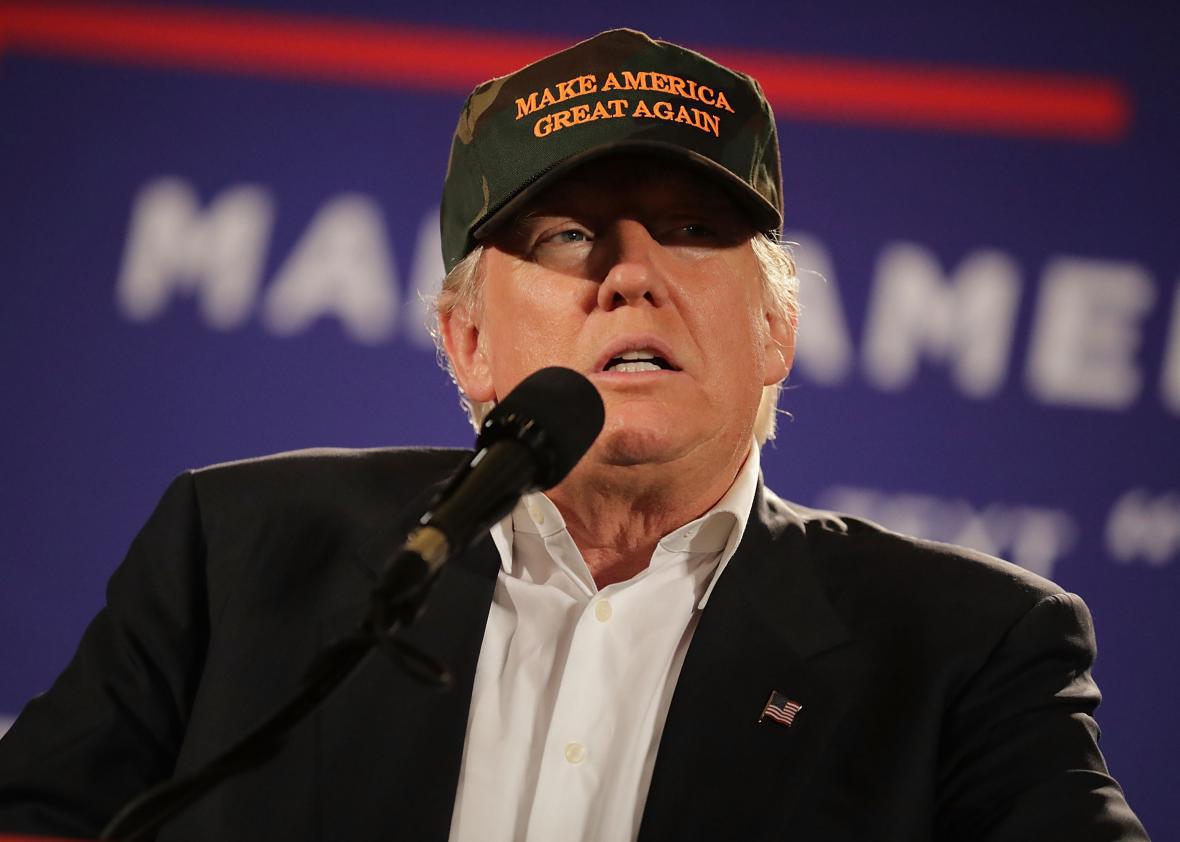On Friday morning, a federal district court will hear arguments in a dispute between the Democratic National Committee and the Republican National Committee over whether the RNC, the Trump campaign, and its allies are violating a long-standing consent decree barring the RNC from engaging in intimidation of minority voters at the polls. It’s not the only case being heard on an emergency basis this week: Democrats have filed suit against Donald Trump, Republican state parties, and Trump ally Roger Stone in the battleground states of Arizona, Nevada, North Carolina, Ohio, and Pennsylvania. In the Nevada suit, Stone has been ordered to explain at a separate Friday hearing what his questionable “Stop the Steal” organization is planning for Election Day.
But regardless of how these hearings go Friday, the lawsuits have already borne fruit by getting the campaign on the record with its plans and promises not to intimidate voters. In an important development on Thursday afternoon, the Trump campaign in response to the lawsuits sent an email to Nevada campaign workers describing for them what constitutes illegal harassment and what constitutes good behavior. By getting Trump on the record promising not to harass voters with its “ballot security” activities, the Democrats have significantly lessened the chances of Trump-driven voter intimidation on Election Day.
The main suit stems from RNC activities targeted at minority voters going back to the 1980s ostensibly to stop voter fraud but really about keeping down the Democratic vote. At the time, the Republican Party was accused of sending off-duty police officers to patrol voting precincts in minority areas, it used vote “caging” to send mail to remove minority voter from the rolls (something that was still happening this week in North Carolina), and it engaged in enough other illicit activities that the RNC settled the case through a consent decree that makes the organization liable for contempt if it violates it. The decree was extended in the past decade over RNC objections—which went all the way to the Supreme Court—and expires next year unless the Democrats show that the RNC or its agents are still violating it.
Democrats have presented evidence of the Trump campaign’s encouragement of intimidation, specifically its beating of the voter fraud drum and the candidate’s words instructing his supporters, after they vote, to go to “certain areas” to look for such fraud (certain areas being code for majority black neighborhoods in Philadelphia and other cities). There’s a good argument that the close working relationship between Trump and the RNC makes them agents of each other, and thus that any forbidden Trump activities would mean a violation of the consent decree by the RNC. Democrats have also presented evidence of poll-watchers who said they are from the RNC, a claim that the RNC denies. (Among other things, the RNC says some of these people were working for a consultant hired by the RNC but not to do this particular kind of work.) On Wednesday, the RNC issued its response to a court order questioning its involvement in voter suppression efforts by basically having statements retracted from Trump running mate Mike Pence and campaign manger Kellyanne Conway that had suggested that the campaign and the RNC were working together to prevent voter fraud.
It is not clear what the judge in the DNC versus RNC case will do or what the other judges will do in the state-centered lawsuits that could actually help on Election Day. It might seem that an order from the courts for these entities not to engage in voter intimidation would be too vague to be enforced, and in any case such an order would not deal with any rogue Trump vigilantes who might head to polling places to make trouble.
While it is true that we cannot discount the problem of Trump vigilantes, the suit has forced the RNC, state parties, and the Trump campaign to disclose their official plans. In the Nevada suit, for example, the morning after the court held an emergency hearing, the Trump campaign sent out an email to all those supporters who signed up to be poll-watchers in Nevada that carefully limits the circumstances in which they can try to challenge voters. All over the materials are calls for Trump supporters to avoid anything that looks like voter intimidation.
It’s no surprise then that Marc Elias, the Democratic Party’s superlawyer who has been leading this amazing flurry of voting rights lawsuits, tweeted that the letter directing Nevada Trump supporters not to challenge voters without getting legal advice first was “the first success from the lawsuit.”
And it is not only the fact that the suit appears to have spurred the Trump campaign to warn against activities that might intimidate voters, which makes it a win. Getting the parties on record as saying they won’t engage in illegal activities is valuable in and of itself, because defendants know when they make such representations to the court, the court will not look charitably on them later if they don’t keep their word. So in a way, the Democrats have already won the fight to prevent voter intimidation on Election Day.
Of course, none of this likely would have been necessary if we did not have the most irresponsible presidential candidate of modern times trying (and succeeding) in convincing his supporters that the vote is rigged and that if his opponent wins it will be because she stole the election. It is pernicious and already sets the stage to delegitimize a Clinton presidency if she is elected as America’s first female president on Tuesday. That alone should be reason enough to extend the RNC consent decree for another eight years.
But on Election Day, we should all rest at least a bit easier, knowing that much of what the Trump campaign might have planned to deter Democratic voters from going to the polls is unlikely to materialize.
